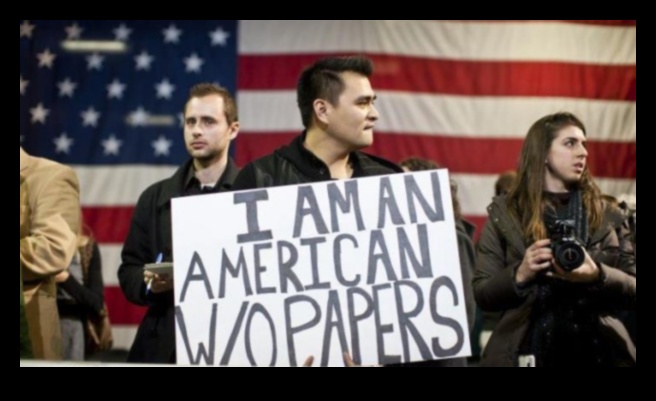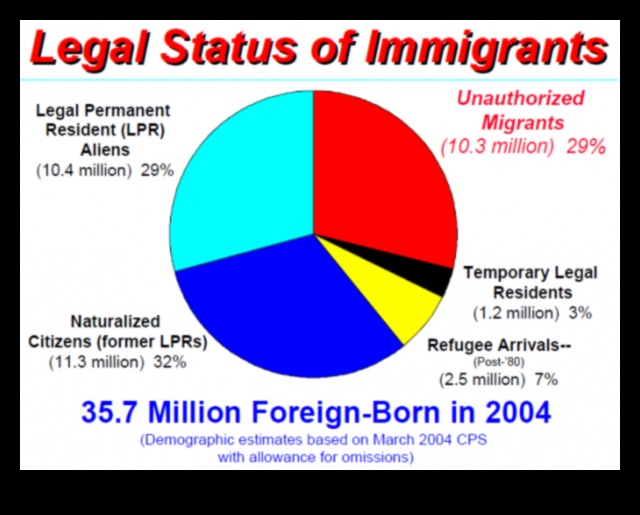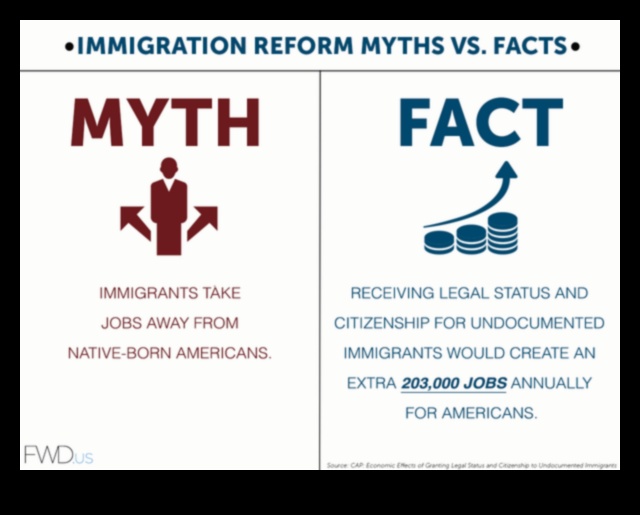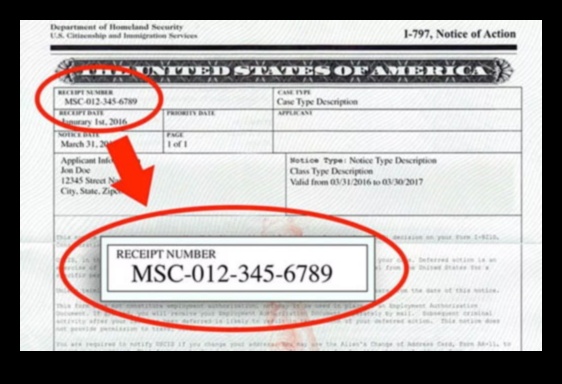Immigrants Illegal vs. Undocumented


Difference Between Illegal and Undocumented Immigrants
II. What is an Illegal Immigrant?
III. What is an Undocumented Immigrant?
IV. How are Illegal and Undocumented Immigrants Similar?
V. How are Illegal and Undocumented Immigrants Different?
VI. What are the Consequences of Being an Illegal Immigrant?
VII. What are the Consequences of Being an Undocumented Immigrant?
VIII. How Can Illegal Immigrants Become Legal?
IX. How Can Undocumented Immigrants Become Legal?
X. FAQ
Keywords:
1. illegal immigrant
2. undocumented immigrant
3. immigration law
4. immigration policy
5. citizenship
Informational. People searching for “what is the difference between illegal and undocumented immigrant” are looking for information about the two terms. They may be trying to understand the legal definitions of each term, or they may be trying to learn more about the experiences of undocumented immigrants.
| Feature | Illegal Immigrant | Undocumented Immigrant |
|---|---|---|
| Legal status | Not a U.S. citizen or lawful permanent resident | Not a U.S. citizen or lawful permanent resident |
| Immigration law | Entered the U.S. without authorization or violated the terms of their visa | Entered the U.S. without authorization or violated the terms of their visa |
| Immigration policy | Deportation is a possible consequence of being an illegal immigrant | Deportation is a possible consequence of being an undocumented immigrant |
| Citizenship | Not a U.S. citizen | Not a U.S. citizen |

II. What is an Illegal Immigrant?
An illegal immigrant is a foreign national who has entered a country without permission or whose stay in the country has expired. Illegal immigrants are often referred to as undocumented immigrants, though the two terms are not synonymous.
Illegal immigrants are not entitled to the same rights and benefits as legal residents or citizens, and they may face deportation if they are caught. However, they may still be able to work, attend school, and access healthcare.
The number of illegal immigrants in the United States is estimated to be between 11 and 12 million people. The majority of illegal immigrants come from Mexico, followed by Central America and Asia.
Illegal immigration is a controversial issue in the United States. Some people believe that illegal immigrants are a drain on the economy and that they take jobs away from American citizens. Others believe that illegal immigrants are hardworking people who are simply trying to provide a better life for their families.
The United States government has taken a number of steps to address illegal immigration, including building a wall on the border with Mexico, increasing border patrol, and cracking down on employers who hire illegal immigrants.
III. What is an Undocumented Immigrant?
An undocumented immigrant is a foreign national who is living in a country without legal permission.
Undocumented immigrants may have entered the country illegally, or they may have entered legally but overstayed their visas.
Undocumented immigrants are often referred to as “illegal immigrants,” but this term is considered to be pejorative by many people.
Undocumented immigrants are a vulnerable population that faces a number of challenges, including discrimination, poverty, and lack of access to healthcare and education.
Despite the challenges they face, undocumented immigrants make significant contributions to the U.S. economy and society.
They are an important part of the workforce, and they contribute billions of dollars to the U.S. economy each year.
Undocumented immigrants are also raising families and contributing to their communities.
Despite their contributions, undocumented immigrants are often treated as second-class citizens.
They face discrimination in employment, housing, and education.
They are also denied access to many public benefits, such as healthcare and driver’s licenses.
The Trump administration has taken a number of steps to crack down on undocumented immigration, including increasing border security and making it more difficult for undocumented immigrants to obtain legal status.
These policies have made life more difficult for undocumented immigrants, but they have not stopped them from coming to the U.S.
The number of undocumented immigrants in the U.S. has remained relatively stable in recent years, despite the Trump administration’s efforts to reduce it.

IV. How are Illegal and Undocumented Immigrants Similar?
Illegal and undocumented immigrants are both people who have entered a country without the proper documentation. They may have crossed the border illegally or overstayed their visas. Both groups of immigrants face challenges in obtaining legal status and may experience discrimination and other forms of hardship.

V. How are Illegal and Undocumented Immigrants Different?
There are a few key differences between illegal and undocumented immigrants.
Legal status. An illegal immigrant is someone who has entered or remained in a country without authorization from the government. An undocumented immigrant is someone who does not have legal documentation, such as a green card or a visa, but who may have entered the country legally.
Criminality. Illegal immigration is a crime, but being an undocumented immigrant is not. Undocumented immigrants are not criminals simply because they do not have legal documentation.
Access to benefits. Illegal immigrants are not eligible for most government benefits, such as Social Security, Medicare, and food stamps. Undocumented immigrants may be eligible for some benefits, such as emergency medical care and public education.
Risk of deportation. Illegal immigrants are at risk of being deported if they are caught by immigration authorities. Undocumented immigrants may also be at risk of deportation, but they may have more options for staying in the country legally.
It is important to note that the terms “illegal immigrant” and “undocumented immigrant” are often used interchangeably, even though they have different meanings. This can lead to confusion and misunderstanding. It is important to understand the difference between these two terms in order to have a productive conversation about immigration policy.
VI. What are the Consequences of Being an Illegal Immigrant?
There are a number of consequences of being an illegal immigrant in the United States. These include:
- The inability to obtain legal employment
- The inability to obtain a driver’s license or other government-issued identification
- The inability to access public benefits such as healthcare and education
- The inability to travel freely within the United States
- The risk of deportation
In addition to these legal consequences, illegal immigrants may also face social and economic challenges. They may be subjected to discrimination and abuse, and they may have difficulty finding affordable housing and employment. They may also be at a higher risk of poverty and crime.
The consequences of being an undocumented immigrant can be severe. However, there are a number of resources available to undocumented immigrants who are seeking to improve their legal status. These resources include legal aid organizations, immigration lawyers, and community-based organizations.
VII. What are the Consequences of Being an Undocumented Immigrant?
Undocumented immigrants face a number of challenges and disadvantages in the United States. These include:
- Lack of legal status. Undocumented immigrants cannot legally work, own property, or access most government benefits. This makes it difficult for them to support themselves and their families.
- Fear of deportation. Undocumented immigrants live in constant fear of being deported. This can lead to anxiety, depression, and other mental health problems.
- Discrimination. Undocumented immigrants often face discrimination from employers, landlords, and other members of society. This can make it difficult for them to find work, housing, and other essential services.
- Exploitation. Undocumented immigrants are often exploited by employers who pay them low wages and offer them unsafe working conditions. They may also be forced to work in jobs that are illegal or dangerous.
- Social isolation. Undocumented immigrants may be isolated from mainstream society because they lack legal status. This can make it difficult for them to build relationships, find jobs, and access services.
The consequences of being an undocumented immigrant can be devastating. These individuals face a number of challenges that make it difficult to live a safe and productive life in the United States.
How Can Illegal Immigrants Become Legal?
There are a few ways that illegal immigrants can become legal. The most common way is to apply for a green card, which is a permanent resident card. To qualify for a green card, you must have a job offer from a U.S. employer, be a family member of a U.S. citizen or permanent resident, or have been granted asylum or refugee status.
Another way to become legal is to apply for naturalization, which is the process of becoming a U.S. citizen. To qualify for naturalization, you must have lived in the U.S. for at least five years, have a good moral character, and be able to speak, read, and write English.
The process of becoming legal can be long and difficult, but it is possible. If you are an illegal immigrant, you should speak to an immigration lawyer to learn more about your options.
IX. How Can Undocumented Immigrants Become Legal?
There are a few ways that undocumented immigrants can become legal. The most common way is to apply for a green card, which is a document that allows you to live and work in the United States permanently. To qualify for a green card, you must have a sponsor, such as a family member or employer, and you must meet certain requirements, such as having a job offer or being able to prove that you have skills that are in demand in the United States.
Another way to become legal is to apply for asylum. Asylum is a legal status that is granted to people who are fleeing persecution in their home country. To qualify for asylum, you must prove that you have a well-founded fear of persecution on account of your race, religion, nationality, political opinion, or membership in a particular social group.
Finally, undocumented immigrants may also be able to become legal through a process called deferred action. Deferred action is a temporary status that allows undocumented immigrants to remain in the United States without fear of deportation. Deferred action is not a path to citizenship, but it can provide undocumented immigrants with some stability and peace of mind.
X. FAQ
Q1: What is the difference between an illegal immigrant and an undocumented immigrant?
A1: There is no legal difference between an illegal immigrant and an undocumented immigrant. Both terms refer to a foreign national who is present in the United States without legal authorization. However, the terms are often used differently in popular discourse.
Q2: What are the consequences of being an illegal immigrant?
A2: Illegal immigrants face a number of challenges, including:
- Deportation
- Inability to obtain legal employment
- Inability to access public benefits
- Discrimination
Q3: How can illegal immigrants become legal?
A3: There are a number of ways for illegal immigrants to become legal, including:
- Applying for a green card
- Getting married to a U.S. citizen
- Applying for asylum
- Deferred Action for Childhood Arrivals (DACA)


![Sheffield International Postgraduate Merit Scholarships [year]/[nyear] 12 Sheffield International Postgraduate Merit Scholarships](https://lessmag.net/wp-content/uploads/2025/04/University-of-Sheffield-International-Postgraduate-Merit-Scholarship-390x220.jpg)

